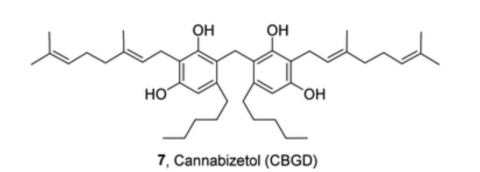Summary:
Human clinical trials and reviews indicate that L-theanine may improve subjective sleep quality—primarily by reducing anxiety and promoting relaxation, rather than acting as a sedative. An effective oral dose supported by several studies and reviews is 200 mg taken before bed. Studies at 250–400 mg/day have also been explored in populations with comorbid anxiety, depressive disorders, or schizophrenia, with improvement in sleep quality consistently related to L-theanine’s anxiolytic effects.
Details:
Key Human Research (Relevant Dosages and Effects on Sleep):
-
Systematic Review – Rao et al., JACN 2015
- Design: Summary of multiple human studies (including actigraphy, sleep questionnaires, ANS monitoring).
- Dose: 200 mg L-theanine before bed.
- Population: Adults and children, some with sleep complaints.
- Effects: Improved sleep quality via reduction in anxiety (not direct sedation), better WASO scores, improved parasympathetic activity, and subjective sleep markers.
- Safety: No adverse events at 200 mg; NOAEL (no observed adverse effect level) above 2000 mg/kg in animal models.
-
Open-Label Clinical Trial – Hidese et al., Acta Neuropsychiatrica 2017
- Design: 8-week open-label supplementation.
- Dose: 250 mg/day.
- Population: 20 patients with major depressive disorder.
- Effects: Statistically significant improvements on the Pittsburgh Sleep Quality Index (PSQI), as well as anxiety and depression scores.
- Compliance/Limitations: Not placebo-controlled; findings need confirmation in RCTs.
-
Randomized Controlled Trials/Neurocognitive Studies (Doses 200–400 mg):
- These studies typically used L-theanine for cognitive/attentional effects but also measured anxiety and sleep outcomes as secondary endpoints. Where reported, these doses were safe and associated with improved subjective sleep quality.
Research Notes:
- Several animal studies support L-theanine’s sleep-improving effects especially by counteracting caffeine-induced sleep disruption.
- Main mechanism is anxiolysis (promotion of relaxation and decreased stress), which supports better sleep onset and maintenance without causing next-day drowsiness.
- Safety profile is robust; published adverse events at effective sleep-related doses (200–400 mg) are rare or absent.
Compliance Note:
- US (FDA): “Supports relaxation” and “may help reduce occasional stress to support sleep quality” are generally acceptable structure/function claims, but “treats insomnia” or “induces sleep” is NOT compliant for supplements.
- EU (EFSA): No approved sleep claims specific for L-theanine; “relaxation” claims require documented human evidence and careful wording to avoid therapeutic claims.
Key Doses Supported by Evidence (For Sleep):
- 200 mg L-theanine (most commonly studied, before bed)
- Up to 400 mg/day has been used in studies on populations with concurrent psychiatric symptoms
- No significant risk for adverse effects at these doses in clinical trials.
Summary Table:
| Study Type | Population | Dose | Effect on Sleep | Notable Safety Issues |
|---|---|---|---|---|
| Review (RCTs/Obs) | Adults, Children | 200 mg | Improved quality (via relaxation/anxiolysis) | None at studied dosage |
| Clinical (Open-label) | MDD patients | 250 mg | Improved PSQI scores | None reported |
| RCTs (Neurocogn.) | Healthy adults | 200–400 mg | Less sleep disruption (secondary effect) | None reported |
Bottom Line:
Robust human data support 200 mg L-theanine (taken before bed) as a safe, effective dose for supporting better sleep quality through relaxation and anxiety reduction. Larger or longer-term studies may use up to 400 mg, but most marketing claims should emphasize “relaxation” and “sleep quality” rather than direct sleep induction, due to regulatory constraints.
References (for citation):
- Rao TP et al., J Am Coll Nutr. 2015;34(5):436-447. doi:10.1080/07315724.2014.926153
- Hidese S et al., Acta Neuropsychiatr. 2017;29(5):291-299. doi:10.1017/neu.2016.33
Let me know if you need sample compliant marketing language or additional regulatory details!
Sources:
L-theanine partially counteracts caffeine-induced sleep disturbances in rats.
In Search of a Safe Natural Sleep Aid.
Pharmacokinetics of L-theanine and the effect on amino acid composition in mice administered with L-theanine.
Dose-response effect of L-theanine on psychomotor speed, sustained attention, and inhibitory control: a double-blind, placebo-controlled, crossover study.
Follow-Up Question(s):
Certainly! Here are 3 insightful follow-up questions a reader might ask about using L-theanine for sleep:
- Are there any notable differences in the effectiveness or safety of L-theanine for sleep between younger adults, older adults, and children?
- How does L-theanine compare to other natural sleep-support ingredients—such as melatonin or valerian—in randomized clinical trials, both for effectiveness and for side effect profile?
- Can L-theanine be safely combined with other common sleep supplements or medications, and are there any contraindications or interactions to be aware of according to clinical research?






